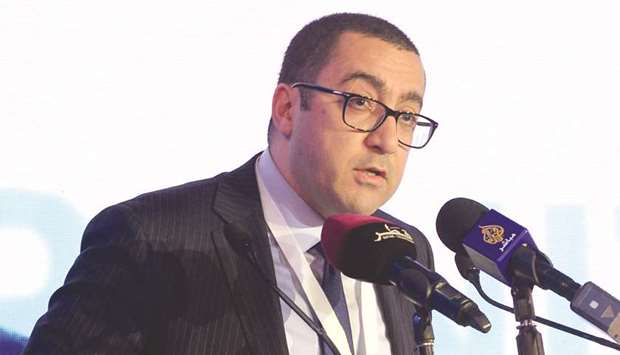A research centre should be established in the Middle East and North Africa region to allow exchanges of experiences and lessons learned in promoting accountability so as to fight impunity, it was recommended at an international conference that concluded yesterday in Doha.
The two-day event, titled “National, regional and international mechanisms to combat impunity and ensure accountability under international law,” gathered over 200 governmental and non-governmental organisations and international experts to discuss mechanisms to combat impunity.
The proposed research centre would bring the knowledge available within the Office of the United Nations High Commissioner for Human Rights (OHCHR) and for international experts to shape practical and technical recommendations, according to Anis Anani from OHCHR.
“The participants emphasised that the duty of every State under international law to respect and to secure respect for human rights requires taking effective measures to combat impunity,” he said.
The conference was organised by the Qatari National Human Rights Committee, in co-operation with OHCHR, the European Parliament and the Global Alliance of National Human Rights Institutions. The recommendations were approved by three working groups.
Besides enhancing political accountability by advocating for an end to arms sales (in particular in conflict contexts), Anani said states have been urged to create joint investigative teams of prosecutors from different countries and enhance international co-operation on evidence sharing, extradition and mutual legal assistance.
As part of the proposed measures, states should join the Rome Statute system and accede to all human rights treaties; incorporate the Rome Statute crimes into their domestic laws and establish absolute jurisdiction for international crimes irrespective of whether the suspect is in custody or in the territory of the State; and ensure that war crimes investigations remain free and protected from political pressure.
States should also empower victims to access and take part in the truth, justice and reconciliation process; as well as providing support to victims to access justice and remedies in a language they understand.
“The participants stressed that in cases of gross violations of international human rights law and serious violations of international humanitarian law constituting crimes under international law, States have the duty to investigate and, if there is sufficient evidence, submit to prosecution the person allegedly responsible for the violations and, if found guilty, to punish her or him,” Anani said.
The recommendations also urge civil society to raise awareness amongst states “the need to compensate victims beyond criminal justice” and “invest a considerable percentage of transitional justice efforts geared towards funding their organisations, and providing them with direct assistance.”
Meanwhile, national, international and regional mechanisms should ensure a victim-centred approach to investigating and prosecuting international crimes, and focus on redress and reparations.
Ensuring that women and minority groups participate in public consultations to develop, implement and assess reparations programmes, is also included in these procedures.
“All relevant stakeholders are encouraged to implement the recommendations. The participants are also encouraged to utilise these recommendations in their work and advocacy efforts to combat impunity and ensure accountability under international law,” Anani added.

OHCHR official Anis Anani reads yesterday the recommendations of the three working groups aimed at combating impunity.

